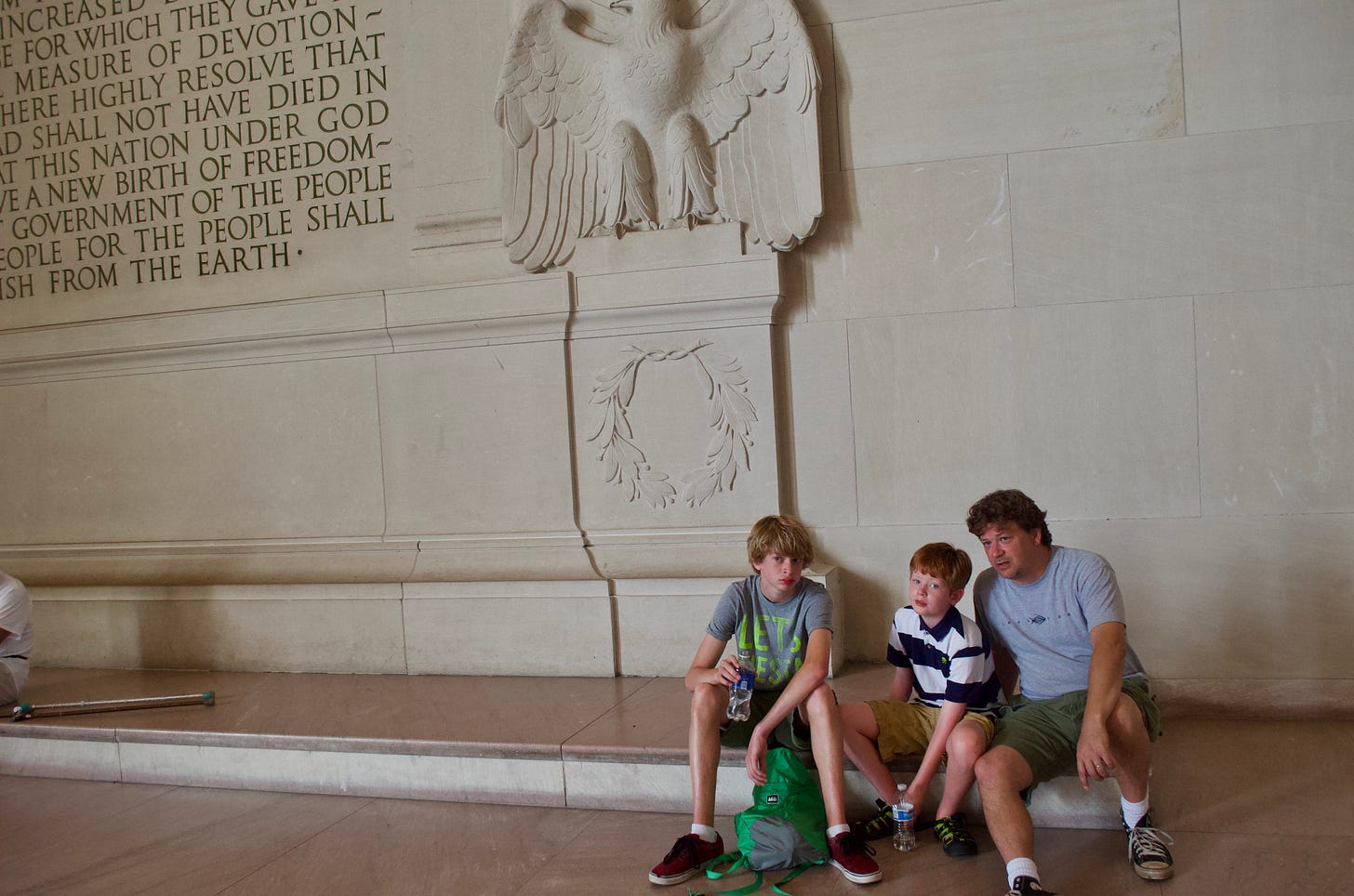Can Schools Save Democracy?
From my hermetically-sealed bedroom, where I quarantined all last week after a COVID scare, I watched a horde of radical Trump supporters storm our Capital. A guy with a furry Viking hat and no shirt stood at the podium where Nancy Pelosi and other legislative leaders make laws and help run our government. At times, the scene was almost comical, because some of those folks looked like extras from a Wes Anderson film. But mostly, the scene was deeply upsetting.
Before my husband found a place on Wall Street, he was a humble historian. His specialty was the inter-war years in Germany, writing his dissertation on Erich Ludendorff. So, when he looked at events unfolding on TV, all he saw was Nazi parallels. “Symbolism? Check! Performance art? Check! Law and Order themes? Check! Radical conservatives who aren’t controlled by traditional conservatives? Check! Chaos Agents? Check!”
I look at those delusional people, some of whom look like they’ve led some rough lives, and I think about schools. What could schools have done to prevent those attacks? Some of my friends believe that schools could be doing a better job teaching kids about civics and media literacy, so people can learn to separate online conspiracy stories from reality and can value rules of law. I’m not sure how to effectively teach those lessons, when the vast majority of high school graduates aren’t reading on grade level.
What we had last week was a perfect storm. An unhinged president, who was able to directly talk to the people without a filter or an editor. Twitter is a bully pulpit on steroids. A public that is weary from a year of a pandemic. A growing economic gulf between those who have a quality education and those who don’t. Pandering from Republican leaders who were too cowardly to put a check on the president. The erosion of trust in the media and the fragmentation of information-gathering. Those are a whole lot of problems, and schools can’t fix all that.
Perhaps schools could relieve some the anger and the resentment by educating everyone equally; quality of schools should not be based on one’s zip code. Maybe people would be less interested in supporting dangerous demagogues if they felt like the system protected them. Maybe if high school graduates had a solid reading and math foundation they would have better post-high school options and be more content. Content people are less likely to undermine our political system.
Four years ago our country elected a president that was massively unfit for office. His election should have triggered some mass reflection and real changes, but that never happened. Every day that he remained in office, Americans were exposed to mob-style politics, gaslighting, unprofessionalism. With a new scandal in the news every day, we’ve become numb to crass behavior, law-breaking, and just out-and-out insanity. The abnormal is now normal.
We have about ten days left of the Trump presidency. After that, I hope we can recalibrate our standards for political behavior and regain trust in political institutions and mainstream media. Without those standards, we are lost. These standards must begin with a basic education for all citizens.
While I was waiting for the results of a COVID test (negative), I had to spend the week alone in my bedroom. Steve and Jonah brought my computer and a desk into the bedroom. It was actually kind of nice, like being in a hotel room. I had no responsibilities for the house or the kids. The guys brought me food and drinks, and I read some romance novels and finished an article. Cough, cough. I might have to go back.
Top picture: From 2014 trip to the Lincoln Memorial


